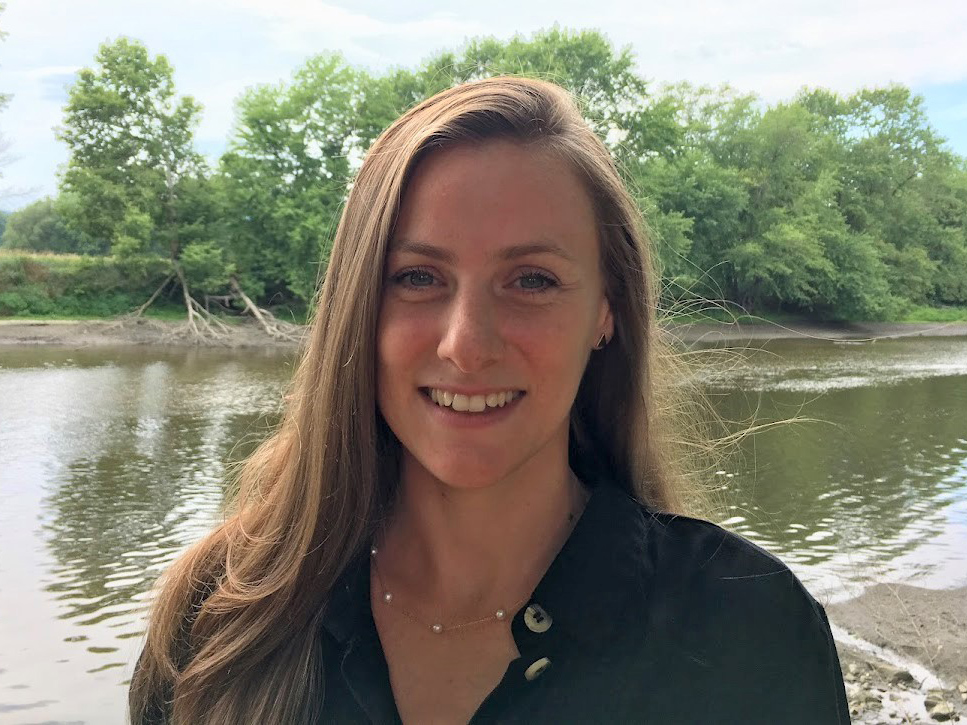Highstead would not be what it is today without the steadfast leadership and diverse experiences of its team members. Meet the people of Highstead: experts, conservation leaders, scientists, and staff that embody Highstead’s mission to build a healthier, more livable world for all in our staff interview series.

What is your role?
Tara: I am the Manager of Conservation Finance Programs. I support the work of our partners and the Regional Conservation Partnerships through research, collaborative efforts, and outreach on environmental policy and finance. I also serve on the Conservation Finance Network editorial team and the Sebago Clean Waters steering committee.
What drew you to Highstead?
Tara: After finishing up my Masters of Science in Environmental Policy and Sustainability Management, I met with many land trusts and conservation organizations in the region to get a good sense of what a career in conservation could look like. When I visited Highstead, I was excited to learn about the regional scale of their work and the many different kinds of innovative projects that the team was involved in.
What are your favorite parts of your job?
Tara: I most enjoy the collaborative nature of the work. Since starting at Highstead, I have learned so much from my colleagues and partners, and I find working as a team is very rewarding. I also really value the creativity of the people I work with and the willingness to try out new ideas and approaches to the tough environmental challenges we face.
Where does your motivation come from?
Tara: My motivation comes from a deep love and respect for the natural world that was instilled in me at a very young age. As a family, we spent a lot of time outside, taking walks and helping my mother in the garden. I have always sought work that connected me to the land and have enjoyed working as a park ranger, environmental educator, and wilderness instructor. My past work experiences and studies have galvanized my interest in environmental justice and a desire for meaningful work where my efforts will both protect the land and natural resources, and the right of all people to have access to and a connection with the natural world.
What is the professional accomplishment you are most proud of?
Tara: I am most proud of how much I have grown professionally. You can take many different paths with a career in conservation, and it can be difficult to navigate at times. I am happy to say I am now in an organization and position that allows me to utilize the skills and relationships I’ve built over the years and, at the same time, challenges me every day to continue to grow and learn.
Do you recommend any books, podcasts, or other resources that have had an impact on your life or work?
Tara: I came across an essay written by William Cronon titled The Trouble with Wilderness several years back, which has had a huge impact on how I think about the natural world and conservation. More recently, I read Braiding Sweetgrass by Robin Wall Kimmerer, which I really enjoyed and would recommend.
Where is your favorite place to recreate in the Northeast? What makes it special?
Tara: My favorite place has to be the forests in Northern New Jersey, where I used to work and lead camping trips for students. I spent so much time in these woods and on the trails that it became my second home. I make sure I make it back there each summer to hike and spend a few nights. It’s a beautiful place that is very important to me.
What advice would you give to the next generation of conservationists?
Tara: I would advise the future generation to stay curious, ask questions, and be open to learning from and connecting with new people. There are so many facets to conservation work, endless new things to learn, and new ways of doing this work. Remember, it is OK if your career path is not a straight line. Different experiences and skills will make you a more agile and impactful conservationist.